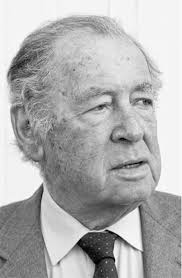Considering the trade-off between tradition and change, we would quite certainly be unable find two individuals in the world whose wish for the New Year and beyond would strike the exact same point in multidimensional choice space. And we are unlikely to find a single individual who wants everything to change or who wants nothing to change. If we adopt the classical liberal principle that all individuals are moral equals (a natural postulate for the economist who ventures in the ethical realm, as James Buchanan well illustrated), it logically follows that neither change nor tradition is a value per se. Whether change or tradition is preferable depends on the individual and their circumstances.
The problem, then, is the following: How to reconcile the individuals’ different preferences and values? (I take individual values as personal preferences regarding the state of the social world.) It is a major scientific discovery of 20th-century economic analysis, from welfare economics to Kenneth Arrow’s Impossibility Theorem, that individual preferences and values cannot be aggregated to form some sort of social equivalent. They can only be reconciled.
The best way ever discovered (by 18th-century economics) to reconcile the preferences and values of multiple individuals in society is individual liberty and voluntary relations; in other words, it is the market model (outside family, friendships, and such small-group relations). Theory and history show that this model is far superior to political authority both for peace and prosperity and for individual equality. The voluntary-relations model assures coordination without coercion. This is the central point of Friedrich Hayek’s thought (see, for example, my Econlib reviews of his Rules and Order and his The Mirage of Social Justice). At the limit, one may be led to the anarchist ideal of an Anthony de Jasay.

Life in society is of course impossible without some constraints on individual action. It is important to understand that, in the market or voluntary model, the constraints on an individual’s actions are made of the consequences of everybody else’s equal freedom, instead of resulting from the diktats of some group of individuals—the ancients in the tribe, the dictator and his minions, the democratic majority and its whims, the mob and its violence.
We may add that in a (true) liberal setup, those who prefer change and progress and those who prefer tradition and security can be accommodated as well as it is possible. To the extent that most individuals, and especially the less rich, prefer economic progress and prosperity, constant change and “creative destruction” are bound to occur. But individuals who prefer tradition are in many ways able to protect their own private domains against the winds of change, even while keeping many benefits of the technological and economic progress they do want. A cultural conservative is not obliged to own a smartphone, but he may if he wants to. “Ordered anarchy,” to use Buchanan’s expression, allows both lifestyles to coexist to the maximum extent possible.
A free society allows you to voluntarily set up constraints on yourself; you may even become a monk if you want to. In an unfree society, you are not allowed to free yourself from the constraints imposed on you. Nothing is perfect, but some things are more imperfect than others.
Happy New Year, with hopefully as much change or tradition as you want!


READER COMMENTS
Azeem Hussein
Jan 1 2023 at 2:55am
If you care to ever read up on physics you’ll find “multidimensional choice space” is referred to as Hilbert Space.
Every object has a waveform of possible outcomes and the Hilbert Space represents this multidimensional choice space.
Each economic actor is both observer and observed in this Hilbert Space.
Lots of fun math as well as application of quantum research and analysis methods to economics ensue once you connect the two concepts.
I’m sure you’ll find it fascinating. Enjoy and happy new year!
Pierre Lemieux
Jan 1 2023 at 1:32pm
Azeem: Thanks for this interesting comment, of which I understand only a tiny, nearly infinitesimal part! Although I know Hilbert as a matter of general culture, I hadn’t heard of his “multidimensional choice space.” I also long hesitated this morning as to whether this expression made sense in the context of my economic reflection.
My reasoning was the following. Imagine a consumer (an individual) with a utility function U=U(X1. X2, …, Xn), where the Xi’s are goods, services, and activities; we are in the usual n-dimensional goods space over which an individual’s utility function is defined. Now add a (n+1)th argument to his utility function, which represents continuous degrees of change or tradition in his life. We now have a (n+1)-dimensional “good” space. Adding his (n+1)-dimensional budget constraint determines his (n+1)th choice set. I meant to say that the optimal point W he chooses on this multidimensional budget line is unlikely to be the same point as that any other individual will choose as there is an infinity of possible choices. In economic jargon, I should have written “multidimensional ‘goods’ space,” not “multidimensional choice space”–because each individual choice set is different. However, I felt, and still mildly feel, that the later expression is somewhat more “visual.” I hope this makes sense!
I suspect that all this has nothing to do with the observer effect or with Heisenberg’s uncertainty principle. Where would be the waves in economics? I think we have to heed Hayek’s warning about scientism in the social sciences (see his The Counter-Revolution of Science or his original Economica article on “Scientism and the Study of Society.” Any further comment would be appreciated.
Warren Platts
Jan 1 2023 at 1:37pm
“If there is no need to change, there is a need not to change.”
Pierre Lemieux
Jan 1 2023 at 4:07pm
Warren: Interesting matter for discussion, but I don’t think this aphorism is logically true. To the tautology “if non-A, then non-A,” it adds, at least implicitly, a normative statement and/or a matter of degree. At any rate, if it is true, then “if there is no need for tradition, then there is a need for no-tradition” (for ad hoc constructivism) is also true. The main argument in my post is that some individuals think that there is (more of) a need for tradition while others think the is (more of) a need for change. The social problem, in order to avoid the Hobbesian war of all against all, is to reconcile these differing preferences.
Mactoul
Jan 1 2023 at 8:12pm
I recommend writings of Anthony Esolen to you. It is not possible for an man to isolate himself from social trends. A marriage of the old-fashioned type cannot avoid being changed by the very fact that other types of marriages now exist.
Pierre Lemieux
Jan 1 2023 at 9:37pm
Mactoul: Please note carefully what I wrote (emphasis added):
robc
Jan 2 2023 at 9:55am
The Amish might disagree.
But probably not entirely.
Pierre Lemieux
Jan 2 2023 at 10:51am
robc: Your second sentence indeed says it all.
Mactoul
Jan 2 2023 at 12:44am
Buchanan starts off with a dogmatic pronouncement
“We live together because social organization provides the efficient means of achieving our individual objectives”.
This statement is not further examined. I suppose an economist cannot assume otherwise but the statement is absurd. In reality, our ” individual objectives ” are generally social in nature– i may want to be tennis champion but that requires tennis tournaments which presuppose plenty of other things such as other tennis players.
Not to mention the entire concept of tennis was not imagined by me personally.
So, in reality, society first, individual objectives later.
So Buchanan puts the cart before the horse.
Jon Murphy
Jan 2 2023 at 6:46am
I think you’re putting the cart before the horse with your example. In the anthropology literature, we find that the earliest human objectives were not “be a tennis champion” but rather “not die.” Food, security, shelter, etc, were the earliest individual objectives. We see people band together to accomplish these goals.
Even your tennis example doesn’t really hold. Only now, in an established world that includes tennis, does your example hold. But tennis had to be invented first. It, too, began as an individual idea, an individual objective: to have fun. And then individuals baned together to form a society around it in order to accomplish goals of tennis-related nature. We know this because tennis was invented in the Middle Ages while the ITF didn’t come about until 1913.
Mactoul
Jan 2 2023 at 11:33pm
There is no evidence whatsoever of people “coming to band together”.
All our closest species live in bands. No primate species is solitary. It is plausible that hominids were band-living species as well.
All this supports our intuition, formalized by Aristotle, that we are a political, that is city-living, species. City is in the sense of well-defined laws and customs that rule the band. These customs are directed to survival of the band over generations.
Jon Murphy
Jan 3 2023 at 7:13am
Yes there is. Tons. We see it happen before our very eyes every day. People form different bands, dissolve different bands, alter different bands, etc many times a day. It may be formal (such as contracts) or informal (such as handshakes or verbal promises).
I mean, there mere existence of society is proof positive of people coming to band together.
I don’t understand your objection here.
Knut P. Heen
Jan 2 2023 at 9:47am
What about divorce? Family first and individual objectives later?
Pierre Lemieux
Jan 2 2023 at 11:02am
Knut: It think the answer is two-fold. First, about half of marriages do end up in divorce, showing that individual objectives remain important if not paramount. Second, the morals that prevail in small groups (family, friends, some neighborhoods, small clubs) are well adapted to this remainder of tribal life; as Hayek shows, the morals of a Great Society are different.
Monte
Jan 2 2023 at 1:27pm
Not that many haven’t tried. The most influential, of course, being Samuelson’s attempts at a neoclassical synthesis of the two. As you point out, they can only be reconciled, but the search for the missing link continues:
I suspect this divide will remain. For as Hayek so astutely pointed out in his 3-part series, Scientism and the Study of Society, “It is only natural that the momentum gained in that struggle should carry Science beyond the mark and create a situation where the danger is now the opposite one of the predominance of scientism impeding the progress of the understanding of society.” We can expect this struggle to continue unabated unless and until we cure Washington of the fatal conceit of central planning.
Ron Browning
Jan 3 2023 at 8:34am
The vital ingredient that allows the reconciliation between change and tradition is prejudice, shunning, ostracism etc.
The lout may talk too loud and crudely. Those around him must be able to reject him without the aid of the state, and he must not be protected from prejudice and ostracism with aid from the State. Likewise, those of tender sensibilities must not have the State force the lout to quiet down.
Those who are inclined to push the envelope of change must be subjected to the peaceful but unpleasant pressure that those around them exert. Sometimes this pressure is very unpleasant, very unkind and sometimes based on very unsound reasoning. This is the vital ingredient.
Comments are closed.